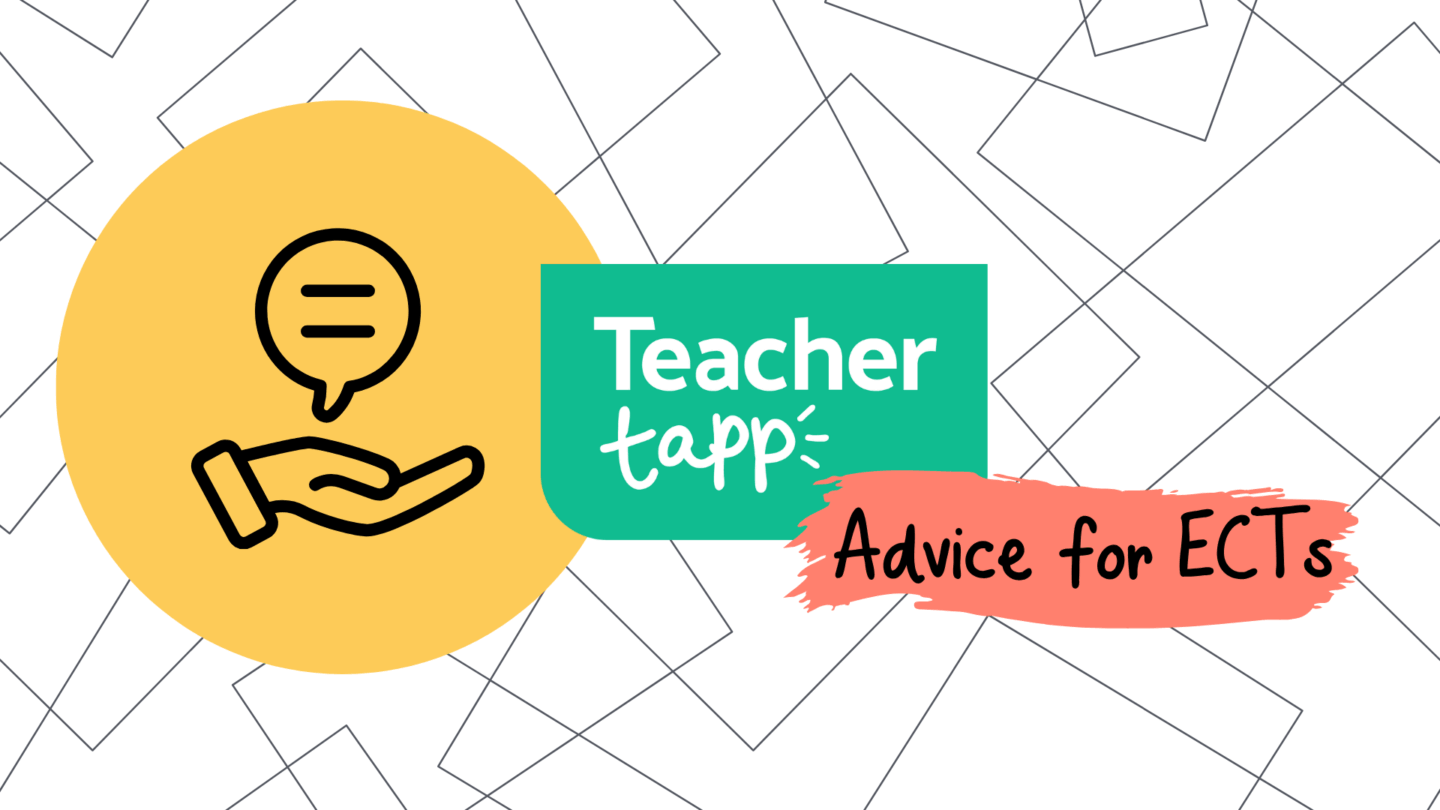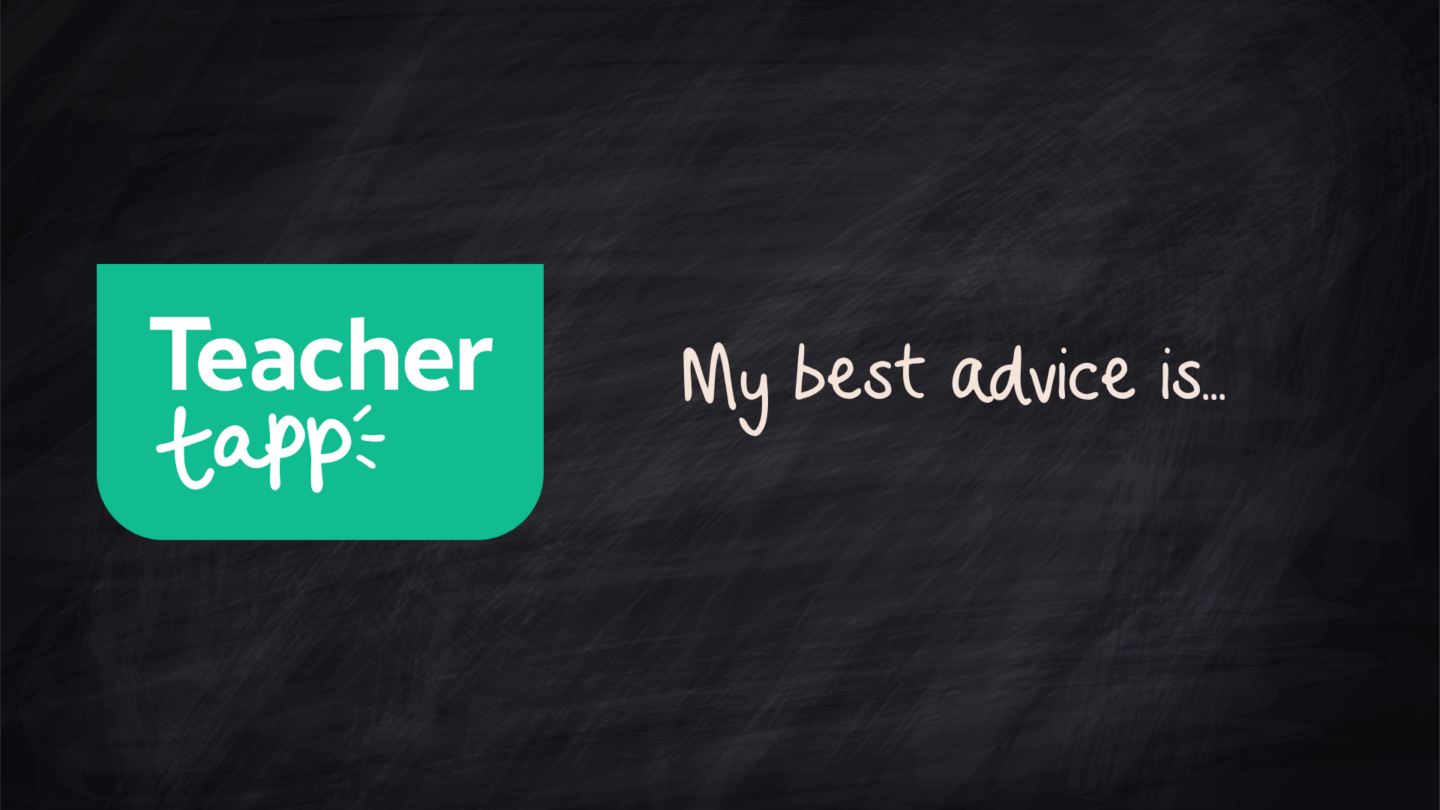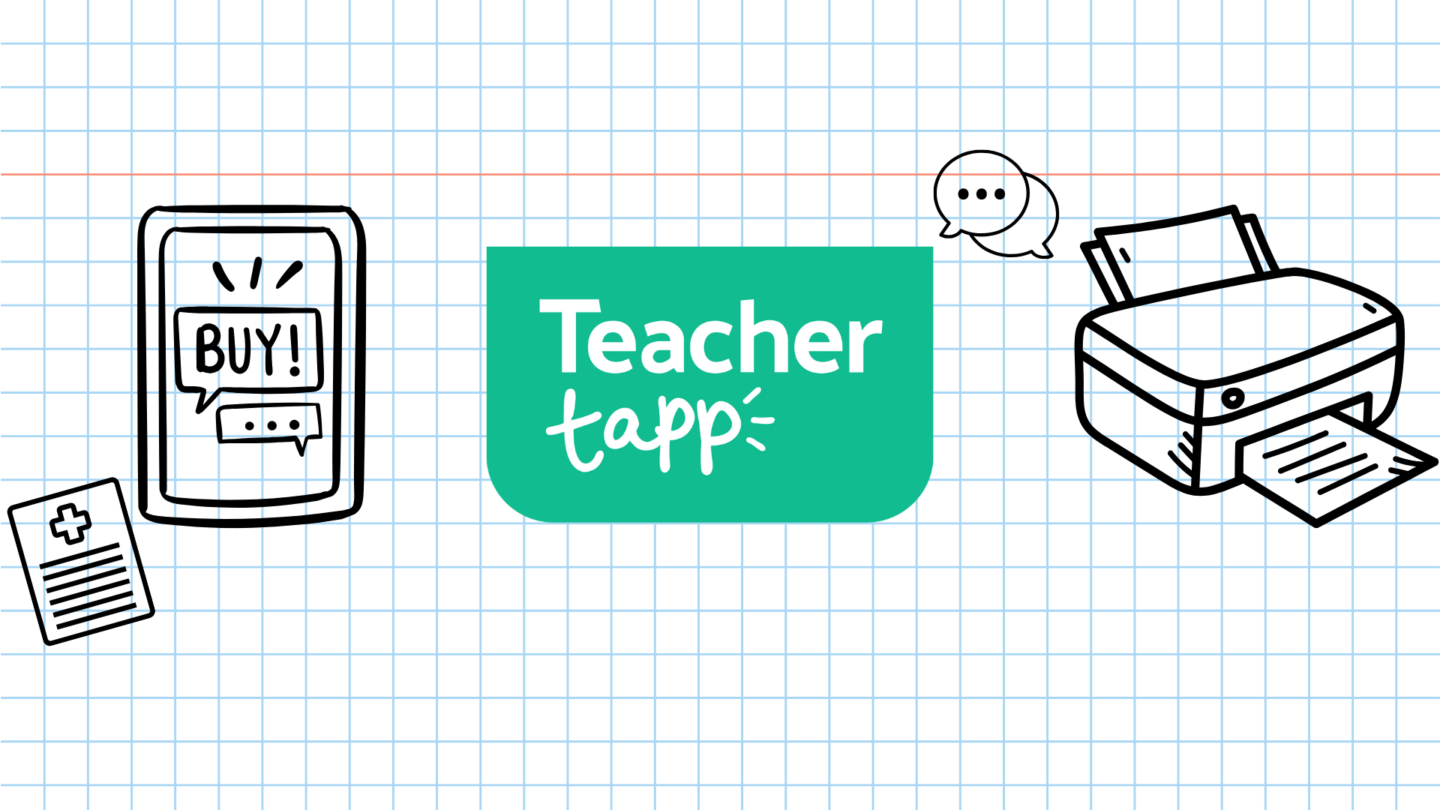Teachers! Tappsters! A slightly unusual blog this week because we need to announce something. Get your seat. Hold on.
? After the end of this week a new version of Teacher Tapp will be winging its way into your phone. Boring technical reasons mean app updates are tricky to schedule exactly, but keep an eye out for a sleek new look and some whizzy new functions.
https://giphy.com/gifs/friends-nick-at-nite-xT0BKiK5sOCVdBUhiM
I know, right! But… WHAT ARE THE NEW FUNCTIONS?
EXCITING CHANGE #1: Share your stats
Teachers love sharing knowledge. It’s what we do. Sharing information within Teacher Tapp has been a bit of a pain. You had to screenshot, perhaps only getting half the results, then save it, then open social media, find your image… YAWN YAWN YAWN.
Behold! The new app version provides easy share buttons for Facebook, Twitter, and Everything Else On Your Phone. You can put all the graphical deliciousness onto your social channels (or into a quiet email) and share it with colleagues. Send to your edu-followers, those colleagues not yet on Teacher Tapp, and if it’s about a stupid or stupendous policy espoused by someone in your school, send the results to them too!
https://giphy.com/gifs/realitytvgifs-twitter-television-f4eXhcyemnGwM
EXCITING CHANGE #2: Points, Streaks, Badges, FUN.
Around a third of Teacher Tappers each day read the ‘tip’ – which is a recommended read, offered up after you’ve seen the results. In the new app, this final ‘tips’ page is changing. Don’t worry. Blog of the day will still be there. (Phew!) But we are adding in more features. For example, you might be told how many questions you have answered or what your longest streak is. Or how you are scoring on wellbeing questions.
Also, you will be able to collect badges! Some will come with actual prizes – e.g. reading all the tips for 30 days in a row. Why? Well, we think it’s only fair that we give something back to you for answering so many questions. Plus it keeps it fun and interesting. No one needs more dull things in their day.
Also, the new format tips means that in the coming months we will trial ways of helping you better understand your working life compared to other teachers. In the coming months we will use the final page to reveal how your well-being or other metrics are scoring compared to other teachers.
Finally, the new features help us better connect you with suitable opportunities. Earlier this year we helped the Pearson Research Group advertise for new members and we were able to direct those adverts towards the most suitable teachers more often. It was a big success and we want to do more of these partnerships. The new app makes them easier for us, and look nicer for you. Win all round! ?
EXCITING CHANGE #3: Email Verification
How do you make app sign-up and log-in as easy as possible while still having some checks on data authenticity? This is a problem we’ve been grappling with at Teacher Tapp. We know many users like the current sign-in system, but new phone updates cause it to glitch in a way that’s unhelpful. Hence, we are introducing a new system for verifying emails. It means you will have to enter a code sent to your email address when you initially log-in (and if you have to log-in again after a system update). Once your email is verified you will have full access to all the features of Teacher Tapp, including those above, and being able to see your previous day’s results. If you don’t verify, you will still be able to use the app but you won’t have access to all features
https://giphy.com/gifs/hyperrpg-fetchquestrpg-fetch-quest-fetchquest-kspZ16RxgvAaxwq1Al
Ok, that’s enough new app excitement… Here’s a few of this week’s results!
1.There’s always more to learn, or is there?
Teachers like learning so it’s heartening, if unsurprising, that 65% of teachers believe they still have more to learn. No one thought they were completely full of learning.
AND YET… when we asked teachers if they had any weaknesses in their instruction, 37% disagreed. This means a third of teachers don’t think they have weaknesses in their teaching and yet believe they have more to learn.
The difference highlights how certain words can mean different things different people. For example, while one person might think the existence of areas they need to improve means they must have some weaknesses in their instruction, other people will simply see their base level as ‘already good’ but able to become better.
Either way, the result suggests around a third of people don’t believe they have weaknesses but do believe they can learn more. If you’re a line manager it is worth using this knowledge to your advantage. If a colleague is struggling, frame their needed improvements as a learning opportunity rather than as a way of helping them overcome weaknesses.
One thing to beware of: the more experienced a teacher gets, the less likely they are to believe they have weaknesses in their instruction.
It is possible they are correct. More experience means more practice and therefore more opportunities become skilled at teaching. However, teaching skills can plateau or dip across a career. So line managers shouldn’t be afraid of addressing weaknesses. But the language you use to address it becomes ever more important.
2.Burnout vs Value
A common lament is that teachers aren’t “valued” by society, even though they are the second most-trusted profession.
But is this perception getting better or worse? We don’t yet know as it hasn’t been tracked in the past.
Our first go at asking, however, found that more teachers feel they are not valued, than feel they are valued. ☹
Not only do lots of teachers feel the job is devalued, the view also correlates with perceptions of burnout.
That is, teachers who strongly believe teachers are not valued society are also experiencing more burnout.
Is one causing the other? It’s impossible to say. In the past we’ve discovered that teachers with low work morale would like their managers to publicly praise them more often, which suggests there’s a link between external validation and how we feel about our job. What we don’t know is if praise would be a pick-me-up, that digs people out of feeling burnout, or if it could be an innoculation shot, that stops them dropping down. One for us to keep looking into. In the meantime, it’s worth finding ways to help you and your colleagues feel valued.
3.A Geography of Sick Children
As the Teacher Tapp team were battling coughs and colds a-plenty this week, we wondered how many others were suffering and if there was an geographical difference in the way infections spread during the autumn term.
Overall, 10% of teachers have been off since the half-term with a cough, cold or flu.
And, in the last week alone, around 40-50% of teachers have sent a child elsewhere because they weren’t well enough to be in a classroom.
But, look! Teachers in the northwest and west midlands were considerably more likely to have a sick child. Hand sanitisers at the ready if you’re around those parts. ?
4.What causes stress?
There are a lot of theories about what makes teachers unhappy at work. But what do teachers say has made them feel unhapy in recent weeks?
The top issue for classroom teachers and senior leaders is ‘workload and work-life balance’, followed by ‘administrative tasks’ for teachers and ‘pastoral concerns’ for leaders.
On almost every indicator, classroom teachers were higher than leaders. Relationships with parents is the only issue that causes leaders more stress. (In particular we have found before that primary headteachers deal with a lot of parent issues).
Noteably, only 22% of teachers said relationships with the senior team had caused them stress. High teacher turnover is often blamed on managers, but this figure would suggest it’s one of the least stressful aspects of the job.
Accountability also seems to weigh heavier on classroom teachers than on senior leaders.
*
5. Finally, as ever, we learned that you really love our daily tips, so here are the links for last week:
I, We, You – How to model in the classroom
Hand gestures and what they signal to pupils
How much fear, risk, and anxiety can a child handle?
The trend for medical words in education
Right folks – over and out for another week…
In the meantime, keep sharing what we are doing. Here’s a powerpoint slide (with script), a PDF, and a black-and-white one-pager to help.
Remember, we need more of you before we can do the really exciting and detailed analysis!
Enjoyed this post and want to join our Teacher Tapp panel?
Sign up via the iPhone App Store or the Android App Store.
You can also check out more at www.teachertapp.com












